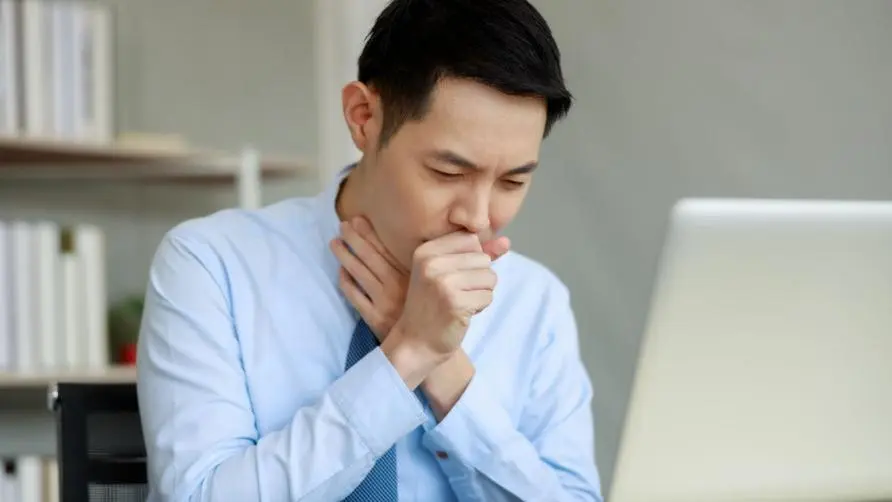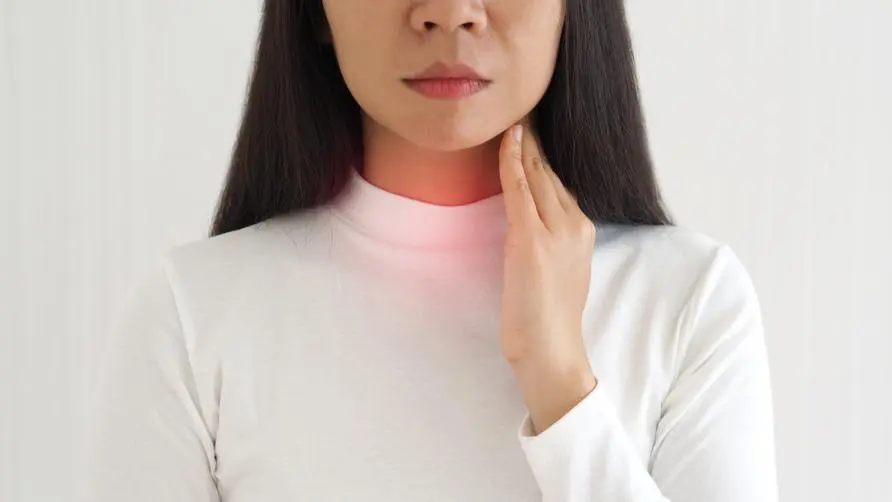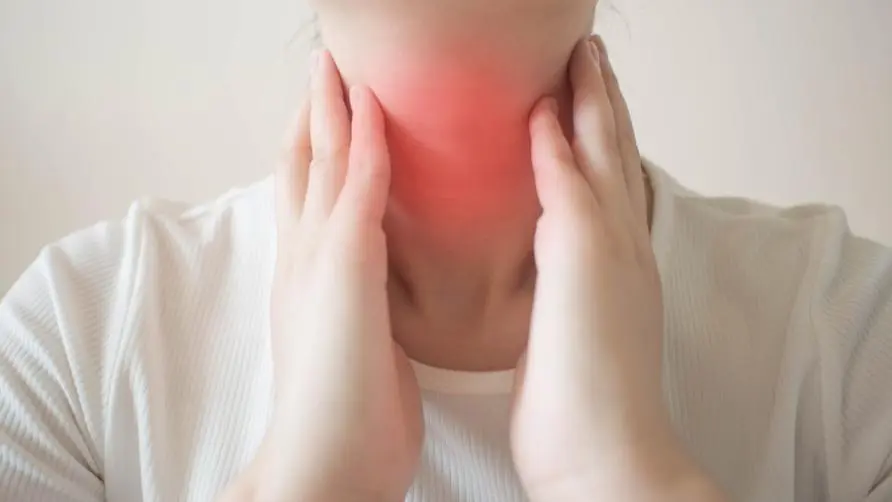Feeling hot and having palpitations when the weather cools down? Top 10 symptoms of hyperthyroidism! Doctor: Indiscriminate withdrawal of medication may cause thyroid storm

Is it unbearably hot during the cold season? What are the symptoms of hyperthyroidism?
If you often experience palpitations, dryness and heat, and inexplicable weight loss, should you be careful of “hyperthyroidism” - a sign of hyperthyroidism? Dr. Jiang Zhuying from the Department of Metabolism of Far Eastern Memorial Hospital said in an interview that a young woman in her 30s who had no special medical history was recently admitted to the hospital. She felt hot and dry even though it was a cold day and had trembling hands and increased bowel movements. Within two months, I lost 6-7 kilograms in weight, combined with symptoms such as eye discomfort, red skin, and anxiety. At first, I thought it was due to too much work pressure. After a blood test, it was confirmed that it was hyperthyroidism.
When the thyroid secretion function is too strong, the body will experience a series of metabolic-related symptoms. Dr. Jiang Zhuying pointed out that the most common symptoms complained by patients with hyperthyroidism include: inexplicable weight loss, increased appetite but weight loss, faster heartbeat to more than 100 beats per minute, hand tremors, heat intolerance, increased defecation frequency, and reduced physical endurance. Weakness in hands and feet, bad temper, insomnia, irregular menstruation.
When some patients experience the above symptoms, they think it is an autonomic nervous system problem or excessive work and life pressure. They do not seek medical treatment until the symptoms last for several months and affect their lives. In clinical practice, thyroid stimulating hormone (TSH) and free thyroid are tested through blood tests. Test FT4 and other values to confirm whether there is abnormal thyroid function.
Are stress and autoimmunity the cause? Hyperthyroidism is more common in young women
Dr. Jiang Zhuying said that the thyroid gland is an important organ of the human endocrine system. It is located in everyone’s throat. It looks like a butterfly and is attached to the front of the trachea. Its main function is to secrete hormones such as thyroxine and is responsible for regulating physiological functions such as heat production, breathing, and heartbeat. , and has an important relationship with the brain nerve and bone development of infants and young children. Healthy human metabolism depends on normal thyroid function and appropriate hormone secretion.
Taiwanese people often have misunderstandings about thyroid diseases. Dr. Jiang Zhuying explained that thyroid problems can be divided into two categories: “functional” and “structural”. Structural refers to thyroid structural abnormalities such as thyroid nodules and cysts, which can be diagnosed through ultrasound, palpation and Fine needle aspiration examination. Function refers to the abnormal secretion of hormones by the thyroid gland. For example, hyperthyroidism can cause symptoms such as heart palpitations and hand tremors, but the patient’s thyroid structure may not necessarily change significantly.
Dr. Jiang Zhuying pointed out that hyperthyroidism is related to autoimmune diseases. About 90% of clinical hyperthyroidism patients are young women. Those who have autoimmune thyroiditis or have thyroid dysfunction in their families usually need to pay attention to related risks. When you have a physical constitution and encounter life stress, causing autoantibodies to attack the thyroid gland, it may lead to hyperthyroidism, which requires further examination and treatment.
Stop taking medication on your own and beware of thyroid storm! Hyperthyroidism Treatment and Care Key Points
Dr. Jiang Zhuying said that once hyperthyroidism is detected, drug treatment is the first choice. The general course of treatment for hyperthyroidism is 1 to 2 years, and patients have the opportunity to gradually reduce or even stop taking medication. Newly diagnosed patients will be prescribed medication for 1 to 2 weeks to confirm that there are no drug allergies or adverse reactions, and to monitor whether liver function is normal. If you experience any allergies or rashes after taking the medication, you should return to the hospital immediately for a doctor to evaluate whether a dressing change is needed. Some patients may need to take radioactive iodine or undergo surgery.
It is particularly important to note that if hyperthyroidism is not properly treated, it may trigger a “thyroid storm.” Dr. Jiang Zhuying pointed out that some patients feel that their symptoms have improved after taking the medication for one or two months and stop taking the medication on their own, which is quite dangerous. This is a dangerous practice. When the thyroid function rises again and encounters drug withdrawal, anesthesia or accidents, it may lead to a rare thyroid emergency called thyroid storm, which is life-threatening.
Dr. Jiang Zhuying reminded that in addition to taking medication and regular follow-up visits, patients with hyperthyroidism should also avoid ingesting large amounts of iodine-containing foods such as kelp, seaweed, and seaweed, and reduce irritating foods, including coffee and strong tea, to avoid symptoms. Aggravated. Smoking will worsen hyperthyroid eye lesions, so you should quit smoking as soon as possible. At the same time, you should adjust your life pressure and exercise appropriately. If your sleep quality is affected by your heartbeat, you can discuss with your doctor whether to prescribe medication to help improve it. The most important thing is to follow the treatment course and return for consultation on time to avoid prolonging the treatment course, or even increasing the risk of thyroid storm if it is not properly controlled.
Further reading:





